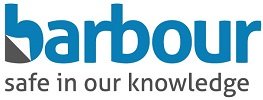Environmental, Health, and Safety (EHS) compliance is essential for a successful business to protect its workforce and minimise environmental impact.
Failure to meet industry-specific regulations can lead to prosecutions, fines, legal issues, reputational damage, and even prison time.
This guide will help you identify and meet your organisation’s requirements for your industry.




 What you’ll get:
What you’ll get: